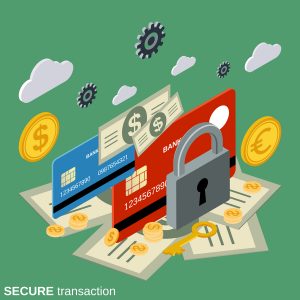Estimated reading time: 2 minutes
PCI-DSS Compliance is a requirement for entity storing, processing or transmitting customer cardholder data.  Whether it’s In-Store, Online or over the phone, the accepting and processing of infrastructure needs to be secure enough to restrict fraudulent opportunities. Major payment processing companies who revolve around the PCI-DSS are the ones who made the rules and regulations of the objective.
Whether it’s In-Store, Online or over the phone, the accepting and processing of infrastructure needs to be secure enough to restrict fraudulent opportunities. Major payment processing companies who revolve around the PCI-DSS are the ones who made the rules and regulations of the objective.
PCI-DSS was originally created in the early 2000s by a few of the most popular credit card giants, (VISA, Mastercard, AMEX) to ensure online sellers have the appropriate processes in place to prevent scary data breaches. To put things simply, it’s very important for enterprises to stay PCI-compliant, for it protects them in the turnaround, even though steps can be extremely complex.
Why PCI-DSS
PCI-DSS helps to prevent fraud for consumers and businesses both. When properly aligned, the risk of the cardholder’s data being revealed can be significantly reduced.  Requirements for seen as more technically complicated than any other industry, and the failure to comply is dangerous for the company. The negative consequences can include lost funds, identity theft, hefty fees, and reputation damage.
Requirements for seen as more technically complicated than any other industry, and the failure to comply is dangerous for the company. The negative consequences can include lost funds, identity theft, hefty fees, and reputation damage.
PCI-DSS aims to pinpoint and correct the mistakes and targets that cyber-thieves attack on a regular basis. These targets include weak passwords, misconfigured software, uneducated employees, etc. Dedicating your time to a thorough infrastructure review is vital for protecting your enterprise. Every entity touched by cardholder data has a role to play in the security and integrity of their systems to protect cardholder information.
How do you comply with PCI-DSS?
Companies are all obligated to complete an annual PCI compliance check, to make sure you are abiding by the rules and not throwing customer data into the line of fire. The twelve essential steps for checking yourself on your compliance standards can be viewed through a popular technology blog, G2 Learning Hub.
What happens if I’m not PCI-DSS compliant, you might ask? The consequences are infinite, and can implode your company’s processes. Financial loss is a big one, for merchants can suffer fines ranging from $5,000 – $500,000, due to the basis of the situation. Secondly, you could potentially lose the ability to process credit card transactions, which is considered by most as a “virtual death sentence.”  Stemming off of that, you could also receive a massive blow in your clientele base, due to the diminishing reputation that will more than likely unfold. Business can be lost, confidence can plummet, all due to not sticking by PCI-DSS rules and regulations.
Stemming off of that, you could also receive a massive blow in your clientele base, due to the diminishing reputation that will more than likely unfold. Business can be lost, confidence can plummet, all due to not sticking by PCI-DSS rules and regulations.
It is to note that payment processing companies are at large, wearing large cyber-targets on their backs. By requiring that this security framework be reinstated in the workplace, PCI has boosted and improved security measures during the full payment process. Managers and Enterprises are able to rest easy knowing that such practices are helping to keep data safe from identity theft and unknown fraudulent transactions.

